“By what power, or in what name, have you done this?”
ACTS of the Apostles of Jesus Christ 4:7b
Previously and Prior to that..
Their Previous Scene at the Temple
Solomon’s Porch (portico) among the grand columns of HEROD’S temple, lasting project of a previous administration also pretentiously guarding what little power Rome would allow, may have seemed to Jerusalem’s authorities a public square upon which Simon Peter was now placing a Name of a new Authority (that was not them). In their minds he may have well proclaimed to the crowds, this Temple will now become THE APOSTLE PETER’S BASILICA.
As they were speaking to the people, the priests and the captain of the temple guard and the Sadducees came up to them.. And they laid hands on them and put them in prison until the next day, for it was already evening.
Their Night in a Familiar Prison
So the powers that be threw Peter, John and the healed lame beggar in jail overnight to be held over for trial the next day. (At least their actions could not be so clandestinely preplanned to hold this hearing at night as these same powers that be had done previously on the eve of Passover.)
Peter, John and the healed beggar lie now in the palace prison, a place familiar to the Apostles from the trials of Jesus and even back to the imprisonment of John the Baptizer. In this dark palace near the Temple they await their trial and fate for preaching the Name of Jesus Christ.
Power Prior to that..
John, Peter and the healed man would know much more of the recent and ancient power struggles for Jerusalem than we do. So allow me to brief you on this first century A.D. ascension of the powers that be in Jerusalem to their positions of political/religious leadership of Jerusalem.
All dates approximate for context of this chronology. The Apostles were Jews well aware of this history.
- 586 B.C. – Solomon’s Temple destroyed
- 516 B.C. – Zerubbabel rebuilt Jerusalem’s Second Temple
- 167 B.C. Antiochus IV Epiphanes ordered an altar to Zeus erected in the Temple
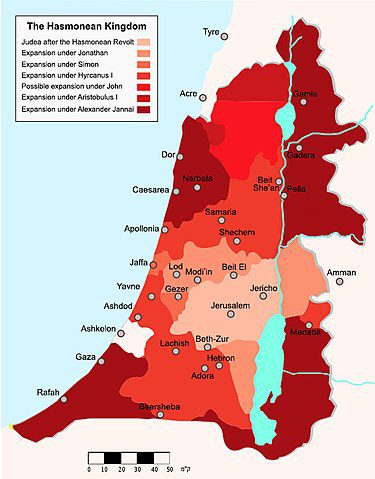
- The lands of the former Kingdom of Israel and Kingdom of Judah (c. 722–586 BCE), had been occupied in turn by Assyria, Babylonia, the Achaemenid Empire, and Alexander the Great’s Hellenic Macedonian empire (c. 330 BCE), although Jewish religious practice and culture had persisted and even flourished during certain periods. – source: Wikipedia incl. below
- 200 BC Seleucid rule over the Jewish parts of the region then resulted in the rise of Hellenistic cultural and religious practices
- 168 BC
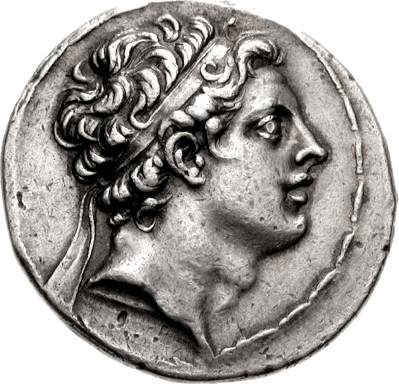
(King Antiochus, the divine Epiphanus, Bringer of Victory.)
Enter the Maccabees
- In 175 B.C.E. Antiochus IV Epiphanes (“[god] manifest”) took the Seleucid throne.
- Then Antiochus attempted to obliterate the Jewish religion by forbidding Temple sacrifices, traditional festivals, Sabbath worship, and the rite of circumcision (the sign of the covenant), upon pain of death.
- When Antiochus’ emissary came to the little town of Modein and demanded that the people offer sacrifices, Mattathias, of priestly stock, refused. Seeing one of the Jews about to comply, he rushed forward and slew him at the altar and then killed the king’s emissary, “acting zealously for the law of God, as Phinehas had done” (cf. Num 25:6-15). Then he and his sons fled to the hills and were joined by many others.
- At his death, his son Judas Maccabeus took charge and waged a successful guerilla war against the Seleucids, retook Jerusalem, and
- 164 BC – 63 BC
- in 164 restored and rededicated the Temple, giving birth to the Feast of Hanukkah (“Dedication”) or “Lights.” Thus began a long war which, despite great odds, ended in victory and the establishment of the Maccabean, or Hasmonean kingdom, an independent kingdom which lasted until 63 BCE.
- source: The Jewish Roman World of Jesus, by Dr. James Tabor [RECOMMENDED further reading]:
- the Roman general Pompey was invited to settle a dispute between two Maccabeans
The World of Augustus Caesar
There was in the days of Herod, the king of Judaea, a certain priest named Zacharias..
Gospel of Luke 1:5a KJV
- from this point forward, Palestine was considered to be controlled by Rome, and in the reorganization by Augustus it fell under the administration of the imperial province of Syria.
- Unlike senatorial provinces, imperial provinces were governed by a military governor called a “Legate” (who, in this case resided at Antioch), and Roman troops were stationed to keep order.
- There were also “districts” that were testy enough to be governed directly by the emperor through his “prefect” (later “procurator”).
- The chief responsibilities of the governors were civil order, the administration of justice (including the judicial right of life and death), and the collection of taxes.
And it came to pass in those days, that there went out a decree from Caesar Augustus, that all the world should be taxed. (And this taxing was first made when Cyrenius was governor of Syria.) And all went to be taxed, every one into his own city.
Gospel of Luke 2:1-3 KJV
from Herod the Great to Acts of the Apostles
As you can see and Luke has already referenced in his first account, power and authority in Jerusalem seem historically fleeting. This scene where Peter preaches in ‘Herod’s Temple‘ takes place where political power remains disputed to this very day.
The powers that be send their men to arrest Peter as before they had arrested both Jesus and John the Baptist.
- Hērǭdēs; c. 72 BC – (4 or 1 BC), also known as Herod the Great, was a Roman client king of Judea
- The Romans assented to Herod’s proclamation as King of the Jews, bringing about the end of the Hasmonean rule over Judea.
- Judea proper, Samaria and Idumea became the Roman province of Iudaea in 6 CE. (AD 6)
Herod’s final will, slightly modified by Augustus, divided his kingdom among his three sons. Philip (4 B.C.E. to 33 or 34 C.E.) was named “tetrarch” of the largely non-Jewish regions northeast of the Sea of Galilee. Herod Antipas (4 B.C.E. to 39 C.E.) became tetrarch of Galilee and Perea, an area across the Jordan River.
Herod Antipas is the king of Galilee in the gospel stories (cf. Luke 13:31-33, “that fox”) and is remembered for the execution of John the Baptist (cf. Mark 6:17-29) and for his contemptuous treatment of Jesus (Luke 23:6-12).
The third son, Archelaus, was given Samaria and Judea in the South. He was opposed by his subjects and by his brother, Herod Antipas. Also at this time there was unrest in Galilee caused by a certain Judas the Galilean so that there was soon total revolt in Judea.
source
- The later Herodian rulers Agrippa I (11 BC – AD 44) {ruling AD 39-33}) and
- Agrippa II [Marcus Julius Agrippa]
- Agrippa was overthrown by his Jewish subjects in AD 66 and supported the Roman side in the First Jewish–Roman War.
Luke/Acts
ALTHOUGH THE EVENTS OF ACTS TAKE PLACE IN THE AD 30’S, LUKE writes both his GOSPEL and ACTS for a later audience in great need of encouragement – THE CHURCH.
Roger@TalkofJesus.com
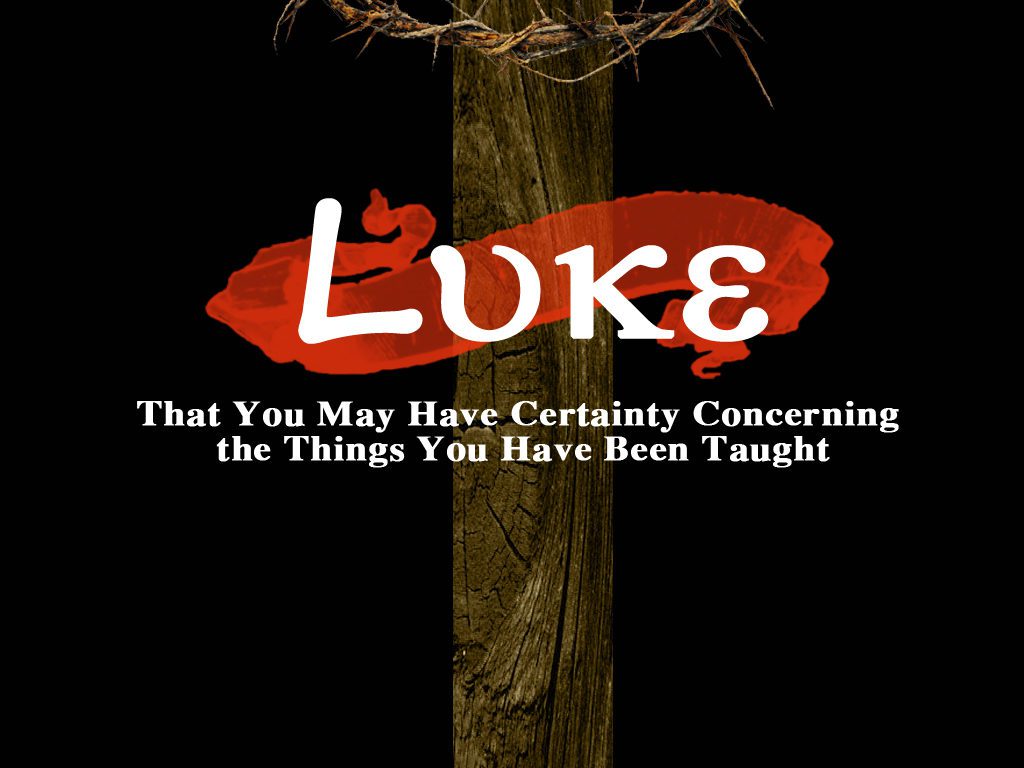
A.D. 60 or 61
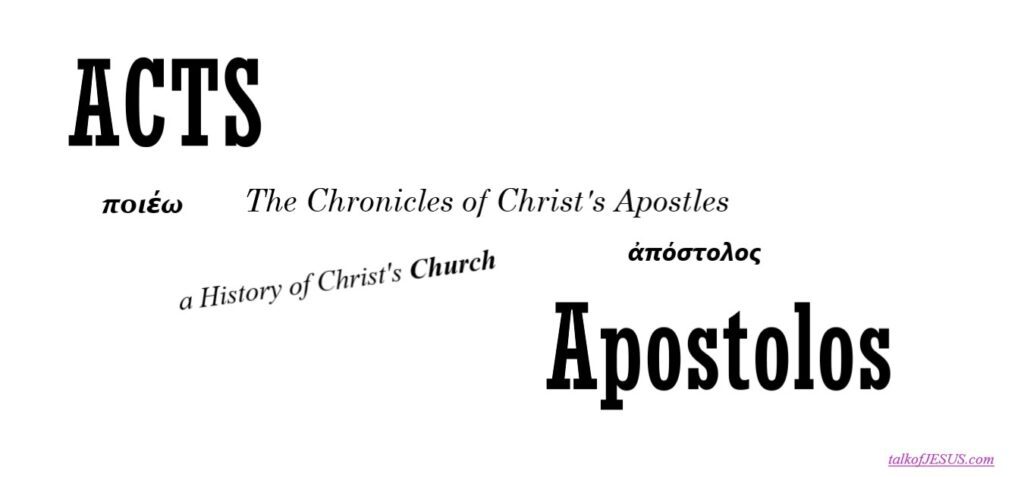
A.D. 60–62
Acts of the Apostles 4:
On the next day their rulers and elders and scribes gathered together in Jerusalem, with Annas the high priest and Caiaphas and John and Alexander, and all who were of the high-priestly family.
Acts 4:5-6
Do you recognize these same power brokers who were part of Christ’s crucifixion where Peter had denied knowing Jesus just two months prior to this?
Rulers, elders, scribes, Annas, Caiaphas and more.
John and Peter know them well. In fact, they may know the place in Herod’s palace where they have just been imprisoned for the night – a place where Herod had imprisoned their former teacher, John the Baptist before having him beheaded.
So now Peter and John face this political/religious court known for what they have done previously with both John and especially Jesus, just weeks before.
7 When they had placed them in the center, they began to inquire,
“By what power, or in what name, have you done this?”
8 Then Peter, filled with the Holy Spirit, said to them,
Rulers of the people and elders..
Here is the same Simon Peter who cowered by a fire denying Jesus to a servant girl outside this same place.
Now the emboldened Apostle defends John, the healed man and himself formally before their political/religious leaders.
‘By what power,’ they ask? ‘In what name,’ they inquire?
Luke has already testified that the Power of the Holy Spirit speaks through Peter!
Once again, Peter replies:
If we are on trial today answering for a benefit done to a sick man, as to how this man has been made well,
let it be known to all of you and to all the people of Israel, that by the
name of Jesus Christ the Nazarene, whom you crucified, whom God raised from the dead—by this name this man stands here before you in good health.
(How these same political/religious power brokers who condemned Jesus must have reacted.)
Referring to the Psalms and Prophets Isaiah and Zechariah, Peter continues:
He is the stone which was rejected by you, the builders, but which became the chief cornerstone.
And there is salvation in no one else; for there is no other name under heaven that has been given among mankind by which we must be saved.”
Now as they observed the confidence of Peter and John and understood that they were uneducated and untrained men, they were amazed, and began to recognize them as having been with Jesus.
Acts of the Apostles 4;13 NASB – reaction of Jerusalem’s leaders to Peter’s defense
And seeing the man who had been healed standing with them, they had nothing to say in reply.
A post-conference of the political powers that be
But when they had ordered them to leave the Council, they began to confer with one another, 16 saying,
“What are we to do with these men?
For the fact that a noteworthy miracle has taken place through them is apparent to all who live in Jerusalem, and we cannot deny it.
But so that it will not spread any further among the people, let’s warn them not to speak any longer to any person in this name.”
Again, just two months earlier Jerusalem’s religious power brokers had quelled the stirrings of the Palm Sunday crowds and managed to turn them against Jesus of whom they had shouted, SON OF DAVID.
What to do with these bold disciples of this man they had nailed to a cross.
And then they had to conspire by false witnesses a way to explain His empty tomb. Of course these politically savvy religious leaders would find a way to dismiss Peter and John to leave them to their comfortable power.
The Sentence of the Court
18 And when they had summoned them, they commanded them not to speak or teach at all in the name of Jesus.
That’s it?
A sentence by the Council showing mercy with a, ‘don’t do this again’ warning?
These lowly Galileans now without their Teacher would certainly go home never to be heard from again — or so they hoped.
19 But Peter and John [with a healed lame man standing along side them] answered and said to them,
Whether it is right in the sight of God to listen to you rather than to God, make your own judgment; for we cannot stop speaking about what we have seen and heard.”
Acts of the Apostles 4:19b-20 NASB – The Apostle Peter’s challenge to religious leaders who ordered them NOT to witness the miracles of God’s Messiah.
21 When they had threatened them further, they let them go (finding no basis on which to punish them) on account of the people, because they were all glorifying God for what had happened; for the man on whom this miracle of healing had been performed was more than forty years old.
A PostScript on Peter
(Known to most readers of ACTS even in the first century A.D.)
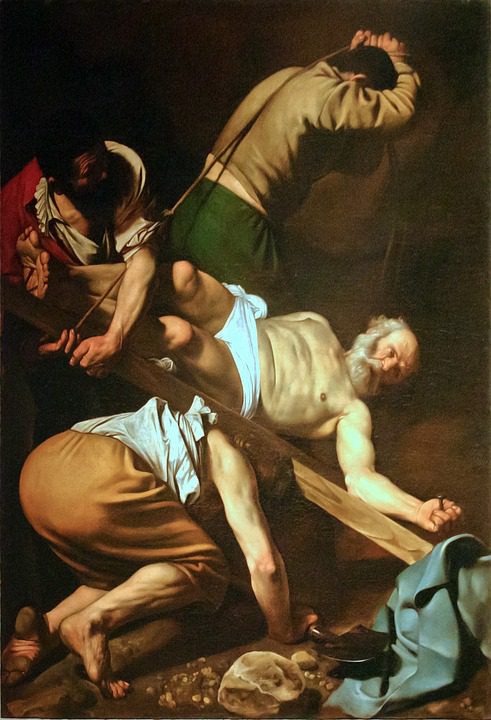
Peter was crucified under the reign of Nero in ~A.D. 64 (most likely in Rome), as were other Apostles and saints of the early Church.
Persecution by the Powers that be (Jewish & Roman)
ACTS OF PERSECUTION by the hand of the powers that be in Jerusalem, Rome and throughout the Empire will certainly impact and martyr the lives of many saints to whom Luke writes.
The dangers (in these early decades of the 60’s of the first century) are real and present as they read Luke’s Gospel and Acts of the Apostles.
As Luke continues not only with Peter’s ACTS and JOHN’s ACTS, but the ACTS of many saints of the early Church, he lifts the persecuted followers of Jesus Christ into understanding by faith that which the APOSTLES all witness.
To be continued... NEXT: They lifted up their voice to God

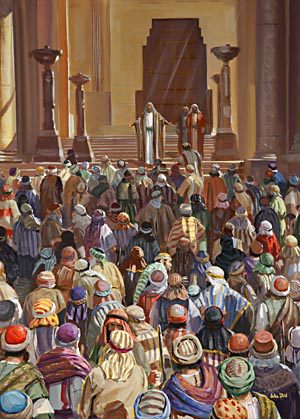
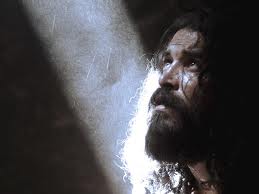
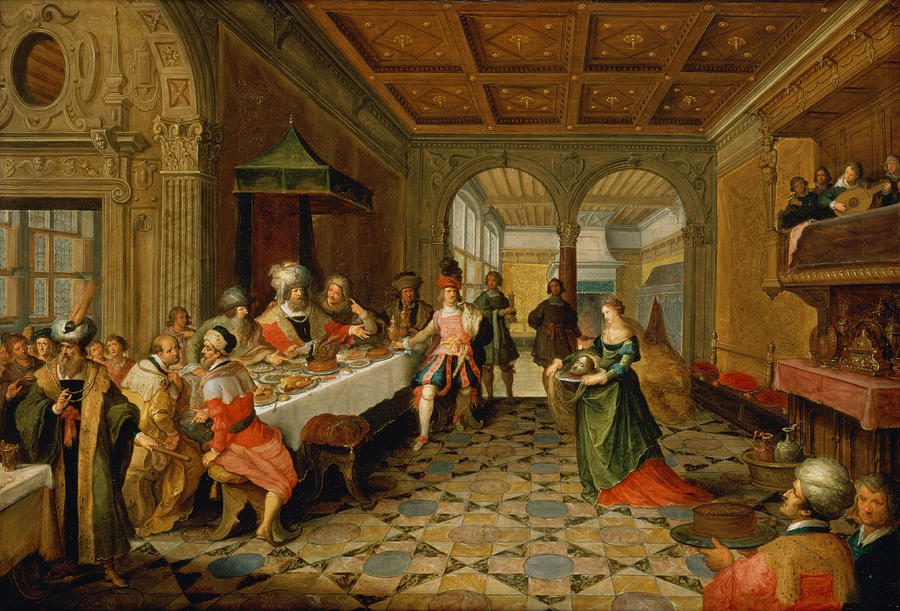
Leave a Reply